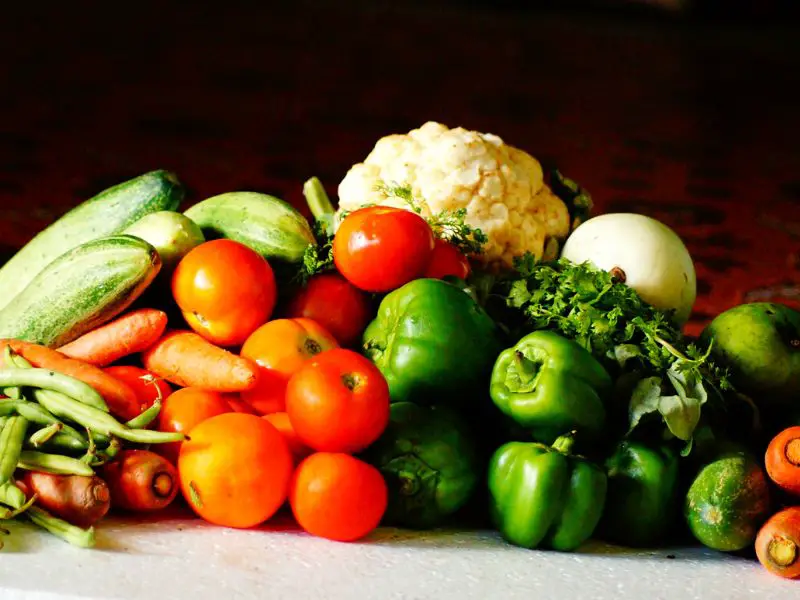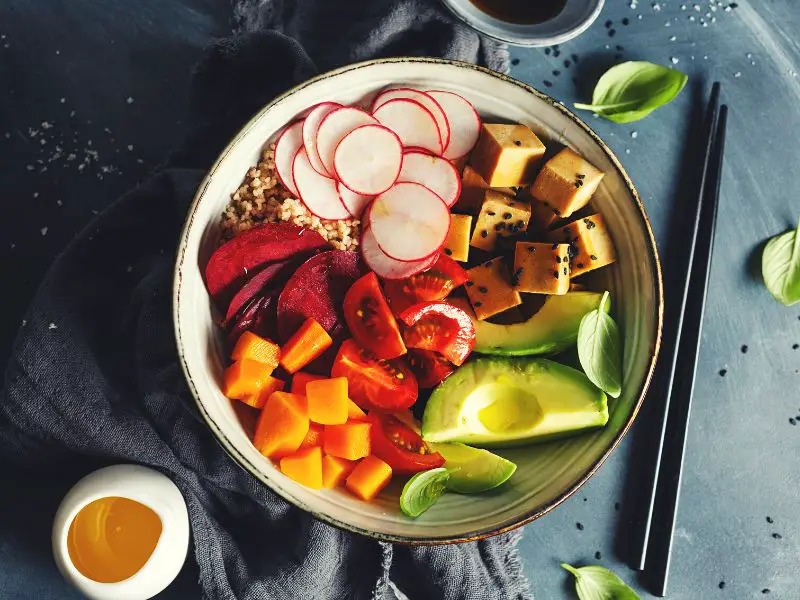Veganism is the practice of refraining from the use of any kind of animal product. Many people embrace veganism for ethical reasons, mostly after noticing the cruel practices of animal agriculture against animals and the negative impact it has on our environment.
In today’s article, we dug into what is veganism, vegan health benefits, how to become vegan, and whether is veganism the future.
What is Veganism
The term “vegan” was created by incorporating the first and last letters of the word “vegetarian.” The first definition of veganism appeared in 1949. It has evolved slightly over time to become what it is now.
Veganism is a lifestyle choice that seeks to exclude, as far as possible, anything related to exploitation and cruelty to animals for personal, food, clothing, or any other purpose.
Vegan Nutrition
If you have a vegan dinner guest, you should double-check your menu to ensure it fulfills two simple principles. Plant-based meals are fine, but animal-based foods, including traditional products like eggs, cheese, milk, and honey, are not.
What vegans eat:
- Vegetables
- Fruits
- Legumes like peas, soybeans, beans, and lentils
- Nuts
- Seeds
- Bread
- Rice
- Pasta
- Alternative milk (coconut milk, almond milk, and soy milk)
- Vegetable oils

What vegans don’t eat:
- Meat (beef, pork, lamb, and other red meat)
- Poultry (chicken, ducks, eggs)
- Fish or shellfish (crabs, clams, lobster, and mussels)
- Dairy (milk, cheese, butter, cream, and yogurt)
- Honey
Vegan Health Benefits
According to several studies, vegans have better cardiovascular health and a reduced risk of developing several diseases. People who consume less meat have a lower risk of becoming obese and a lower risk of developing cardiovascular disease, high cholesterol, and high blood pressure.
Vegans have a lower risk of acquiring diabetes and some types of cancer, particularly tumors that affect the digestive tract and breasts, ovaries, and uterus in women’s cases.
Vegan Health Risks
Avoiding animal protein might leave you deficient in a few essential minerals, including protein, omega-3 fatty acids, zinc, vitamin B12, and vitamin D. Protein is necessary for your body’s ability to carry out its chemical process and build muscle. Your cells will remain healthy, and your heart will be shielded against cardiovascular disease and stroke thanks to the defensive effects of omega-3 fatty acids. These nutrients are very important to the developing bodies of kids and pregnant mothers.
Vitamin B12, which is required to produce red blood cells and DNA in your body, cannot be obtained just through the consumption of plant-based foods. B12 can only be found in foods that come from animals. If you choose to follow a vegan diet, you have to take nutritional supplements or find processed foods that come with B12 to make up for the nutrients your diet doesn’t include.
Types of Veganism
There are different types of veganism believed to have various reasons for following it.
1. Dietary Vegans
They avoid using animal products in food, i.e., meat, poultry, seafood, dairy products, and eggs and honey. But they continue to use them in various products like clothing and cosmetics. Being a dietary vegan can be controversial in the vegan world.
2. Whole Food Vegans
This kind of veganism focuses on whole foods, including fruits, vegetables, whole grains, legumes, nuts, and seeds.
3. Junk Food Vegans
These guys don’t really care about being healthy and live on processed foods, and vegan snacks like Lays, Oreos, and French Fries.
4. Raw Food Veganism
These people are vegans who eat only those foods that have not been cooked above 118 degrees Fahrenheit.
Becoming a Vegan
One approach to analyzing the growth of veganism is examining the rise in sales of plant-based products.
Foods derived from plants are frequently positioned in the marketplace as potential replacements or alternatives to traditional meats and goods derived from animals. In 2021, the sales of plant-based foods climbed at a rate that was three times faster than the growth of overall food sales.

Trend in Veganism
According to Google Trends, the nations where the word “veganism” is most prevalent are predominantly Western. These nations include the United Kingdom, Iceland, Australia, Mauritius, Ireland, New Zealand, Canada, Estonia, Germany, the United States of America, and Sweden.
How Fast is Veganism Growing?
The global market for vegan food increased from $14.44 billion in 2020 to $15.77 billion in 2021, and it is anticipated that this growth will continue for at least the next several years.
The rising number of people interested in reducing the amount of meat they consume is responsible for expanding the vegan industry.
Percentage of Vegans in the World
Unfortunately, there is no global poll in 2022 asking people if they are vegan, but there are polls in 2021 that can give us a feeling of that information country by country. According to the online Statista Global Consumer Survey, over one-tenth of Indians (9%) are vegan, roughly 3% of Germans, 2% of Americans, 1% of Chinese consumers, 1% of Mexicans, and 1% of Brazilians.
Is Veganism the Future?
Many people believe that veganism is on the rise because of all the media attention it has been getting.
The reality, however, is that veganism has a significant effect on your health and the way you perceive humanity, life in general, and the environment. According to science, a vegan diet is richer in critical nutrients, prevents obesity, protects against some cancers and other diseases, and improves your skin and overall health.
Animal agriculture is responsible for 65 percent of the world’s nitrous oxide emissions, which contributes to climate change in a way that is 296 times worse than carbon dioxide. The production of livestock for human consumption is responsible for almost 15 percent of the total world’s greenhouse gas emissions. This percentage is more than all the emissions caused by all forms of transportation combined.
Going vegan for the animals is not a choice for some. Instead, it is a way of life. Many people strongly believe that being vegan is the only way to remain morally consistent in today’s world where animals are mistreated and killed in mass quantities just so we can eat them or use their byproducts. A vegan diet has the potential to reduce your carbon footprint because it uses fewer natural resources than a diet that includes animal products.
How to Become a Vegan?
To become a vegan, you cut out all forms of animal products as much as possible, including fish, poultry, eggs, beef, pork, and any other items derived from animals. Keep in mind that you should also avoid dairy products such as milk, butter, and cheese made from animals.
You can start by looking for advice from a vegan friend and start changing your habits step by step. Depending on your physical constitution, changing your diet abruptly may pose a health risk. Nowadays there is plenty of information on the internet, so you may inform yourself first before fully committing to veganism.
Veganism is a personal choice based on maintaining an ever-expanding circle of compassion that reevaluates what people expect when discussing and thinking about animals, including the use of animals in science, sports, entertainment, and clothing.

Veganism is a hot topic for many people today. There are a lot of misconceptions about this choice. However, it should be clear that it has been rising in recent years because more people are becoming more aware of its benefits. While veganism is not the right option for everyone, the ethics and the health benefits it offers are enough to persuade many people to change their habits.
We hope this article has made you more informed about veganism and has helped you decide if or how you want to incorporate this way of living into your lifestyle. As well, we have included some of our favorite healthy lifestyle articles.


1 thought on “Veganism: What You Need to Know, How to Becoming One, and Is It Worth It?”